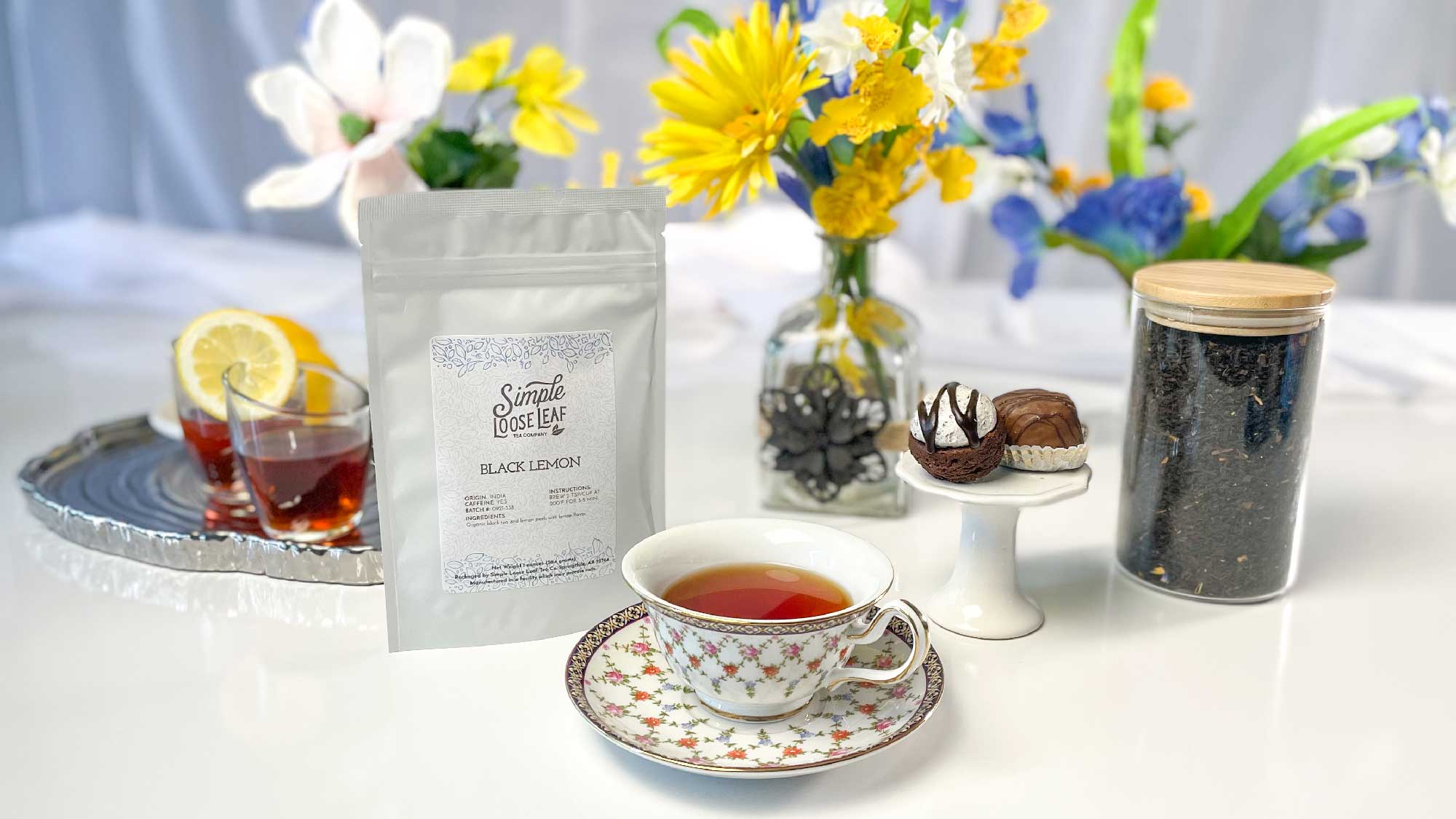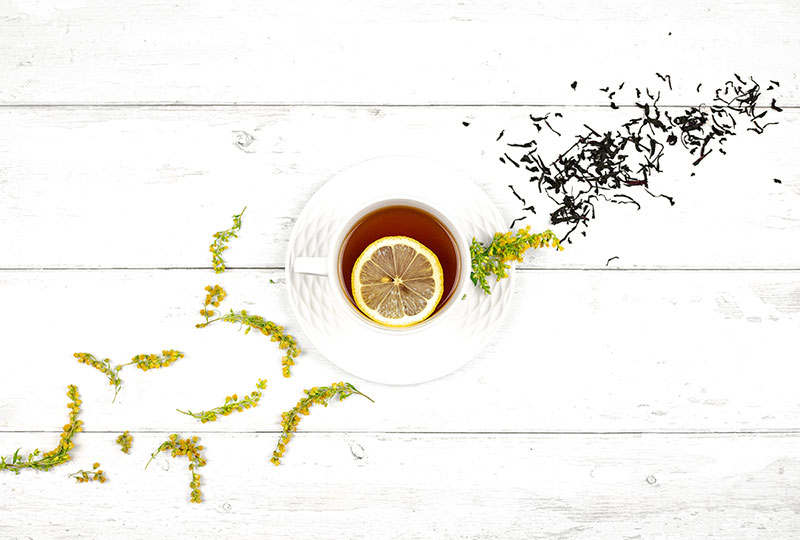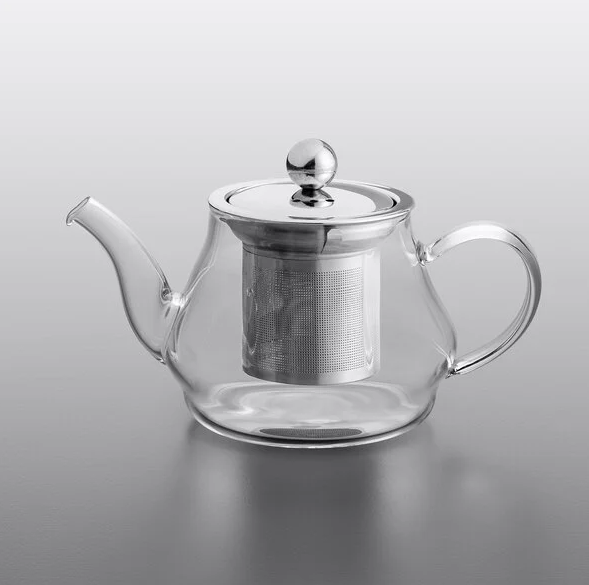Lemon Black Tea: Best Blends + Benefits
This post may contain affiliate links. Simple Loose Leaf is a participant in the Amazon Associates Program, an affiliate advertising program designed to provide a means for sites to earn advertising fees by linking to Amazon.com. A little bit tangy, wonderfully rich, perfectly refreshing, and delicious both hot or iced – lemon black tea is a great choice for either dark winter mornings or summer garden tea parties.
What is lemon black tea?
 Black tea is the most consumed types of tea in the world, followed by green tea. All real teas are made from the same Camellia sinensis plant, but processed differently. However, outside of Asia, most of the times, black tea is not drank pure. Often other condiments such as sugar, honey, lemon and milk are added to enhance the flavor or add sweetness. Lemon black tea is tea made with black tea leaves and lemon slices. There are many different types and strengths of lemon tea:
Black tea is the most consumed types of tea in the world, followed by green tea. All real teas are made from the same Camellia sinensis plant, but processed differently. However, outside of Asia, most of the times, black tea is not drank pure. Often other condiments such as sugar, honey, lemon and milk are added to enhance the flavor or add sweetness. Lemon black tea is tea made with black tea leaves and lemon slices. There are many different types and strengths of lemon tea:
- Pure black hot tea with a slice of lemon added before or after brewing
- Pure black hot or iced tea with lemon juice
- Hot or iced black tea with natural or artificial flavoring
- Blended hot or iced black tea with dried lemon peel

Hot black tea with lemon
Best Lemon Black Tea blends
If you are used to drinking your tea without condiments, adding lemon to black tea may sound strange, especially to a strong black tea. Although you can add lemon to any black tea, try adding it to blends that already have lemon peel, or to medium strength Ceylon black teas. Some teas may taste better without lemon, so test it out first before making a larger cup. If you are looking for blends that already contain lemon peel, try some of the following:- Blueberry Le’Mint – smooth and rich, unique black tea with lemon peel, mint and blueberries that goes well with milk
- African Purple Tea – unique type of Kenyan tea with lemon peel, rose hips and calendula
- Green Dragon Tea – beautiful blend of green tea, chrysanthemum, lemon peel and marigolds
Benefits of black tea with lemon
Black tea is one of the most common breakfast tea choices around the world. Not only does it provide numerous potential benefits, but it usually contains the highest amount of caffeine. This makes it a good replacement for a cup of morning coffee. Lemon is often used for detoxifying too. If you don’t add any sweeteners, lemon black tea will contain almost zero calories. Some health benefits of lemon black tea are:1. Antioxidant activity
Both antioxidants in black tea and Vitamin C may help boost the immune system, reduce oxidative stress[1] [2] and help fight free radicals that can cause cell damage and lead to many diseases.2. Anticancer activity
Studies showed that all real teas may provide some type of anticancer activity. However, another research showed that drinking black tea that also contains lemon peel may even have an increased anticancer activity[3].3. Aiding weight loss
Research showed that drinking 3 cups of black tea per day may help prevent fat acummulation[4] and turn the existing body fat into energy faster[5]. On the other hand, lemon may help cleanse digestive tract[6].4. Protecting the heart
Both black tea and lemons, especially if combined with walking, may help protect against heart diseases and reduce the risk of a heart attack[7], and lower blood pressure[8] [9]. Studies showed that black tea could be beneficial for lowering blood sugar and reducing cholesterol[10] too[11].Simple Black Lemon Iced Tea Recipe
Making the best tasting iced black lemon tea, doesn't require any special ingredients. The most important part is choosing the best black tea. Although many teas can work wonderfully for this simple recipe, Ceylon Supreme gives a very light, very refreshing, smooth tea which blends wonderfully with a bit of lemon. Assam teas may give a stronger base, so you may want to add a bit more lemon and honey. You will need:- 1-2 teaspoon of Ceylon Supreme tea
- Lemon juice of ¼ of lemon
- 1 cup of water
- 1 teaspoon of honey (optional)
- Ice
- Bring water to a boil.
- Use boiling water to preheat your teapot or a mug.
- Steep one teaspoon of tea leaves in one cup of water for 5 minutes.
- Strain and let it cool down for 5 minutes.
- Fill the glass with ice.
- Pour tea over ice.
- Squeeze in lemon juice and stir.
- Serve

Lemon black iced tea
What else to add to your lemon tea?
If you want a richer cup (or a glass), you can add many other ingredients to lemon tea recipes. Spices like cinnamon and ginger blend amazingly well with lemon. Other zesty fruits and flowers such as hibiscus, rose hips, redcurrants or oranges will intensify the zestiness and add more complexity. Flowers such as elderberry flowers or rose buds can many any cup of lemon tea more sophisticated and floral.Disclaimer: This article is for informational purposes only. It’s not intended to replace medical advice, diagnosis or treatment. Every person is different and may react to different herbs and teas differently. Never use teas or herbs to treat serious medical conditions on your own. Always seek professional medical advice before choosing home remedies.
References:
[1] https://pubmed.ncbi.nlm.nih.gov/29099763/ [2] https://www.nature.com/articles/1602489 [3] https://www.ncbi.nlm.nih.gov/pmc/articles/PMC45584/ [4] https://www.ncbi.nlm.nih.gov/pmc/articles/PMC6273558/ [5] https://www.ncbi.nlm.nih.gov/pmc/articles/PMC6512146/ [6] https://www.ejpmr.com/home/abstract_id/220 [7] https://www.openaccessgovernment.org/risk-of-heart-disease/52459/ [8] https://www.ncbi.nlm.nih.gov/pmc/articles/PMC4003767/ [9] https://www.ncbi.nlm.nih.gov/pmc/articles/PMC4661527/ [10] https://www.openaccessgovernment.org/risk-of-heart-disease/52459/ [11] https://www.ncbi.nlm.nih.gov/pmc/articles/PMC6512146/
More from:
SLL




Leave a comment